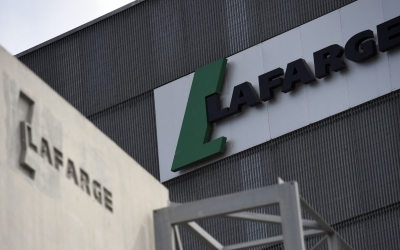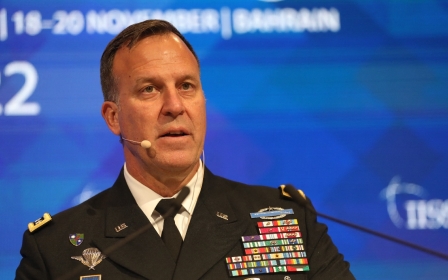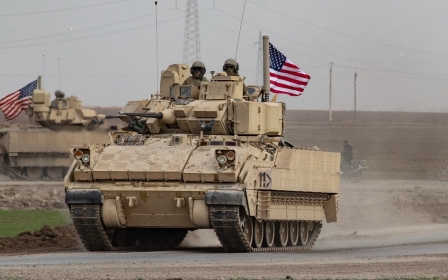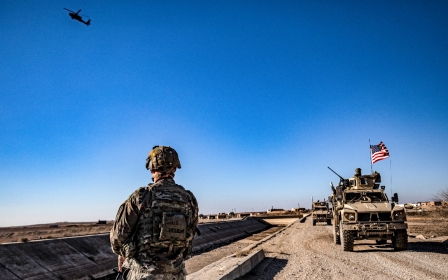US families sue after French cement maker pleads guilty to supporting Islamic State
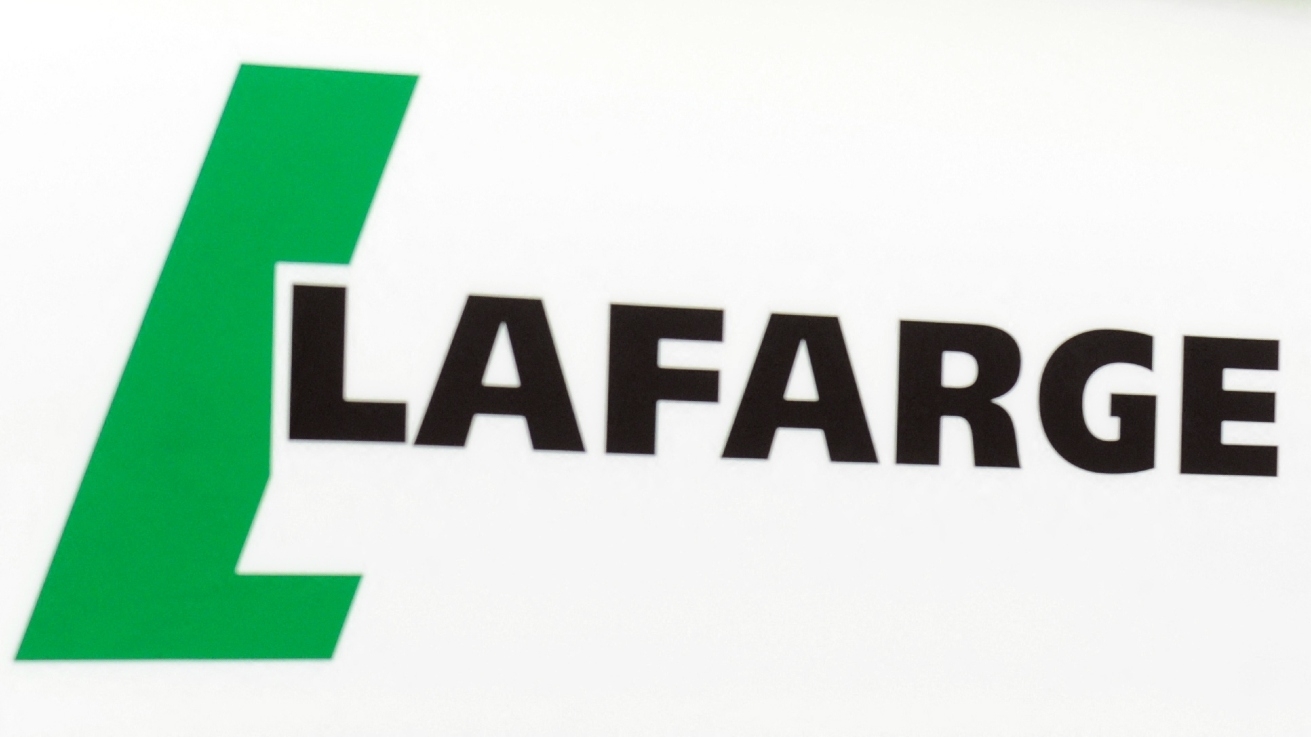
The families of US soldiers killed by the Islamic State (IS) group have filed a lawsuit in New York against Lafarge, the French cement company that earlier this year pleaded guilty to making payments to the militant group to maintain operations through the Syrian civil war.
"Defendants put their economic self-interest above all else - ultimately making over $70 million in sales through their partnership with ISIS - even while ISIS was slaughtering innocent civilians, including Americans," the lawsuit read, as seen by Middle East Eye.
New MEE newsletter: Jerusalem Dispatch
Sign up to get the latest insights and analysis on Israel-Palestine, alongside Turkey Unpacked and other MEE newsletters
The families include relatives of three US servicemen who were killed in attacks that were blamed on the IS group.
Navy Chief Petty Officer Jason Finan of California was killed in Iraq on 20 October 2016, and his family are among those suing the company.
The plaintiffs also include the family of Navy Senior Petty Officer Scott Cooper Dayton, who was killed in Ayn Issa, Syria, on 24 November 2016, as well as the family of former Marine David Berry, who was killed in an attack on the Corinthia Hotel in Libya on 27 January 2015.
"Plaintiffs ... are entitled to recover for the severe mental anguish, extreme emotional pain and suffering, and loss of their relatives’ society, companionship, comfort, advice, and counsel that they experienced as a result of Defendants’ criminal misconduct," the lawsuit said.
The civil case was filed under a US law, referred to as the Anti-Terrorism Act, which allows individuals to seek civil damages against an entity that has provided payments to a "foreign terrorist organisation".
The lawsuit is seeking an unspecified economic and compensatory damages package, and also is demanding a trial by jury.
"This lawsuit is intended to hold it accountable to the military families devastated by its heinous and unlawful conduct," Lee Wolosky, partner at Jenner & Block LLP, a lawyer for the plaintiffs, said in a statement to ABC News.
"We expect more families to join the lawsuit and we look forward to bringing the case to trial before a jury of New Yorkers."
Lafarge pleads guilty
In October, Lafarge pleaded guilty in US court to charges of conspiring to provide material support for terrorism by making payments to the IS group and other US-designated "terrorist groups", so the company could keep operating in Syria.
As a part of a plea deal, Lafarge agreed to pay $778m in forfeiture and fines.
US officials say that from approximately May 2010 to September 2014, Lafarge, through its now-defunct subsidiary Lafarge Cement Syria, operated a cement plant in northern Syria that was built at a cost of approximately $680m.
As the civil war broke out in 2011, fighting erupted across the country between armed rebel groups and the Syrian government, and the IS group took control of swathes of Syria.
US prosecutors said Lafarge and its Syrian subsidiary, Lafarge Cement Syria, paid the IS group and the Nusra Front, through intermediaries, about $5.92m between 2013 and 2014 to allow employees, customers, and suppliers to pass through checkpoints amid the country's civil war.
The payments led to the company earning $70m in sales revenue from a plant it operated in northern Syria, according to prosecutors.
Lafarge eventually evacuated the cement plant in September 2014, prosecutors said. At that point, Islamic State took possession of the remaining cement and sold it for the equivalent of $3.21m.
In a statement, Lafarge's parent company Holcim said none of the deals made with the IS group involved Holcim, "which has never operated in Syria, or any Lafarge operations or employees in the United States, and it is in stark contrast with everything that Holcim stands for".
While the cement maker admitted guilt, the Paris-based human rights group Sherpa criticised the plea agreement, saying at the time that it "impede(s) access to justice for victims and deprives them of a public trial".
Lafarge denies that it was complicit in crimes against humanity.
Middle East Eye delivers independent and unrivalled coverage and analysis of the Middle East, North Africa and beyond. To learn more about republishing this content and the associated fees, please fill out this form. More about MEE can be found here.


